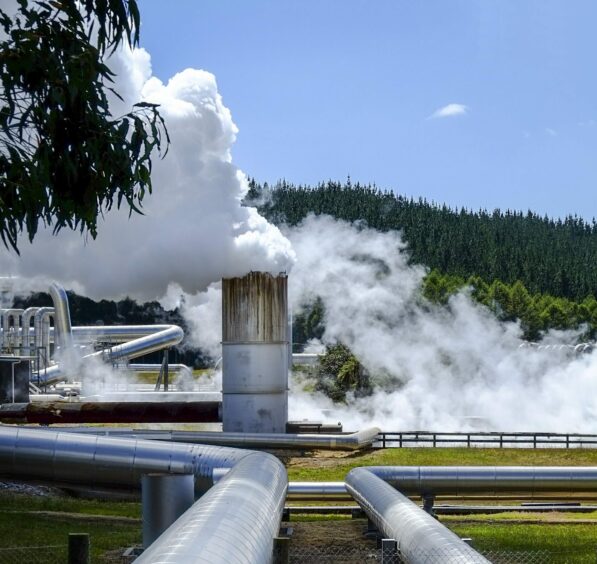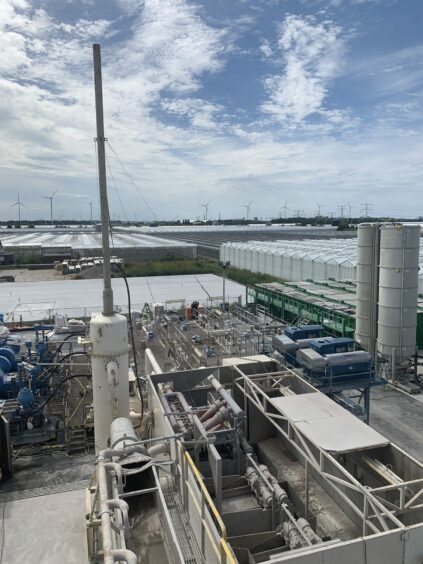
Energy security has never been more important than it is now, given the present geopolitical situation in Europe.
The cost and reliability of importing energy across the continent has accelerated energy policies, incentives, and project development.
It is with this new reality that the relevance of geothermal heating becomes an important piece of the puzzle to Europe’s future energy security.
Geothermal is a clean, renewable, and sustainable source of energy that is available 24/7, making it a dependable source of heat and hot water.
Unlike wind and solar, which are
dependent on weather, geothermal energy is not subject to the same fluctuations and can be counted on to provide consistent, reliable energy.
This reliability is particularly important when it comes to ensuring energy security, as it helps to reduce the region’s dependence on imported energy and enhances its ability to withstand disruptions to supplies.
Expro asked geothermal champion, Alexander Richter, Head of Business Development of Danish geothermal heating developer Innargi A/S, about this very topic.
“Heating and cooling represent about half of Europe’s energy demand and is still largely dependent on fossil fuels – and particularly impactful in the current geopolitical climate – on imported fuels.
“This dependency has become a major concern for energy security in the form of supply and price. Despite decarbonization efforts in place prior to the war in Ukraine, the conflict has intensified efforts to replace fossil fuels in Europe’s energy market.
“Wind and solar provide a much-needed share of renewable energy electricity generation, but when it comes to heating, CO2 -free alternatives are limited.
“With heating requiring lower temperatures than power generation, medium-depth and low enthalpy geothermal resources become the new frontier for geothermal and expand the opportunities for its utilisation massively.
“Larger scale and ambitious geothermal heating projects, such as by the city utility in Munich, Germany, or Innargi ’s projects in Denmark and Poland, as well as smaller individual projects across Europe, highlight a growing trend and interest for the integration of geothermal energy into local district heating systems.”
Much of Europe can easily develop geothermal heating projects for commercial, residential and agricultural use.
We see this in abundance throughout Germany, France, The Netherlands and Denmark.
EXPRO SUPPORTING THE INDUSTRY IN MAASDIJK, NETHERLANDS
Expro has been involved with a recent project for Greenport Westland Oostland (GW O), the world’s largest international horticulture cluster, consisting of all the key players in the industry including greenhouse farmers, supply chain, buyers, and research organisations.
Greenhouses typically have a high heat requirement and traditionally relied on natural gas to provide that energy.
As natural gas production declines and costs increase, there is a growing need for alternative, sustainable heat and energy sources.
Geothermal is a viable solution for heating buildings, greenhouses, and industrial applications.
Greenport’s master plan includes a total of 153 geothermal doublet wells spread over an area of 170 km2, realised in two separate sandstone layers.
It is estimated this geothermal development will provide 25% of the GWO greenhouses with heat for over 30 years.
Several geothermal wells have been drilled in recent years with varying success, some wells have experienced sand production and integrity challenges.
In collaboration with the team responsible for the GWO geothermal project planning, Expro provided input to support the ideal completion design to ensure performance was maximised throughout the geothermal plant lifetime and mitigate against sand production and integrity problems.
An alternative completion design was selected which utilised a cemented liner
which was installed in the lower completion.
Expro provided expertise and operational support to design a dynamic underbalanced tubing conveyed perforating (TCP) programme to access the intended geothermal reservoir and help achieve optimal productivity.
Dynamic underbalanced conditions provide ideal perforation clean-up and specialised charges ensure optimal flow performance in the target reservoir.
The Expro TCP team performed shock modelling to ensure the long bottomhole assembly could be successfully deployed, fired, and retrieved on coiled tubing.
This technology has been used in oil and gas operations for decades, and is now being adopted in geothermal wells to maximise productivity and injectivity into the geothermal aquifer.
Another critical aspect of this project was the need to protect the special Glass-Reinforced Epoxy (GRE) casing while running tools inside the well.
This specialised casing is used to provide completion longevity and protect the casing from corrosive salts contained within the geothermal produced fluid.
A bespoke roller system was designed to ensure the TCP long assembly could be run into the well safely without causing damage to the GRE lined casing.
This integrated project management solution provided technical
know-how, supply chain co-ordination and operational excellence to ensure the project’s success.
Expro was awarded a 10 well contract last year to provide TCP in dynamic underbalanced conditions, to date, two wells have been successfully executed safely, with 100% operational performance.
There has never been a better time for geothermal to step up and demonstrate its
value and benefits.
We believe geothermal heating and cooling will serve a critical role in Europe’s energy security.
With its reliability, low carbon footprint, and potential for economic growth, geothermal heating projects, such as in the Maasdijk region and Innargi’s projects in Denmark and Poland, are being replicated across Europe.
To learn more please contact us today.
Recommended for you

 © Supplied by Expro
© Supplied by Expro